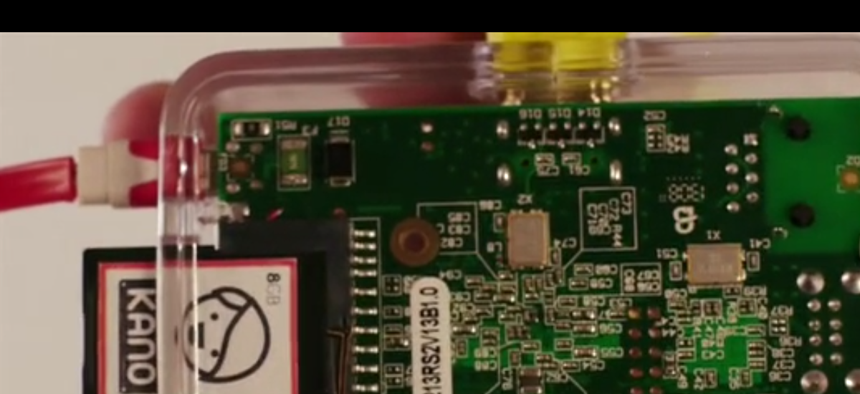Build-It-Yourself Computer Kits Backed by Hackers, Apple Cofounder

Kano
Raspberry Pi and Kano help people understand how computers really work.
The creators of Kano, a kit to assemble your own mini-computer, asked for $100,000 on Kickstarter. One day short of the end of the company’s campaign, they’ve raised $1.35 million from nearly 12,000 backers including Apple co-founder Steve Wozniak and Kickstarter co-founder Yancey Strickler. Alex Klein, one of the three creators of Kano, says people from 44 countries have chipped in (though the majority—some 40%—are American).
Why do these people, all of whom presumably own readymade computers from which they clicked the “back this project” button on Kickstarter, want to build their own machines? It has a lot to do with Kano’s sleek look and its promise to teach them how computers actually work. To do that it uses something called the Raspberry Pi, a $35 British micro-computer that got a lot of attention earlier this year when it hit the twin milestones of shipping a million British-made units and 2 million overall.
The Raspberry Pi, like the Kano, promises a DIY experience to inexperienced amateurs. Yet it poses a challenge for the computer illiterate: On its own, the Pi does nothing. It is just a circuit board. Enthusiastic amateurs who buy a Pi discover that they then have to locate peripherals (like a power cord and a screen), download and install an operating system, learn how to interact with a command line and, when they finally have it set up, figure out what to do next. Despite being built to teach basic computing skills to young people, the Pi found its biggest success among the existing hacker community.
Read the full story at Quartz.





